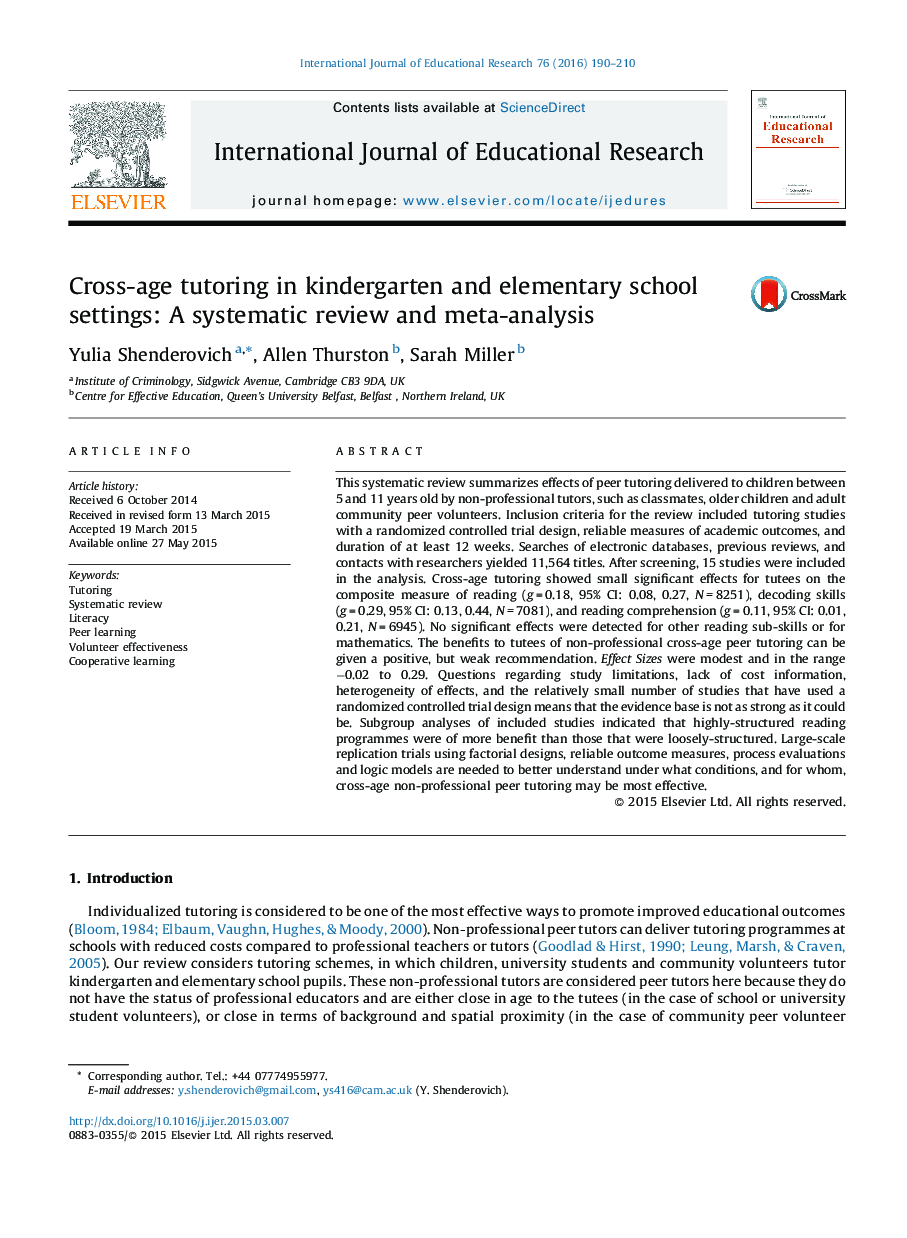| Article ID | Journal | Published Year | Pages | File Type |
|---|---|---|---|---|
| 6841551 | International Journal of Educational Research | 2016 | 21 Pages |
Abstract
This systematic review summarizes effects of peer tutoring delivered to children between 5 and 11 years old by non-professional tutors, such as classmates, older children and adult community peer volunteers. Inclusion criteria for the review included tutoring studies with a randomized controlled trial design, reliable measures of academic outcomes, and duration of at least 12 weeks. Searches of electronic databases, previous reviews, and contacts with researchers yielded 11,564 titles. After screening, 15 studies were included in the analysis. Cross-age tutoring showed small significant effects for tutees on the composite measure of reading (g = 0.18, 95% CI: 0.08, 0.27, N = 8251), decoding skills (g = 0.29, 95% CI: 0.13, 0.44, N = 7081), and reading comprehension (g = 0.11, 95% CI: 0.01, 0.21, N = 6945). No significant effects were detected for other reading sub-skills or for mathematics. The benefits to tutees of non-professional cross-age peer tutoring can be given a positive, but weak recommendation. Effect Sizes were modest and in the range â0.02 to 0.29. Questions regarding study limitations, lack of cost information, heterogeneity of effects, and the relatively small number of studies that have used a randomized controlled trial design means that the evidence base is not as strong as it could be. Subgroup analyses of included studies indicated that highly-structured reading programmes were of more benefit than those that were loosely-structured. Large-scale replication trials using factorial designs, reliable outcome measures, process evaluations and logic models are needed to better understand under what conditions, and for whom, cross-age non-professional peer tutoring may be most effective.
Related Topics
Social Sciences and Humanities
Social Sciences
Education
Authors
Yulia Shenderovich, Allen Thurston, Sarah Miller,
